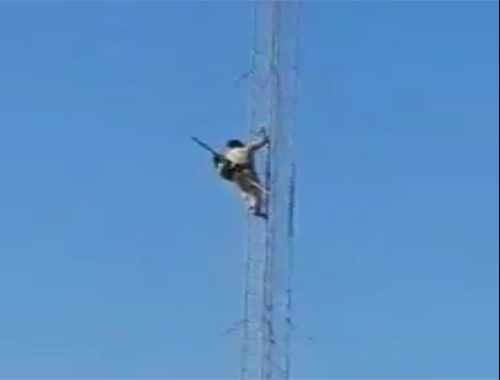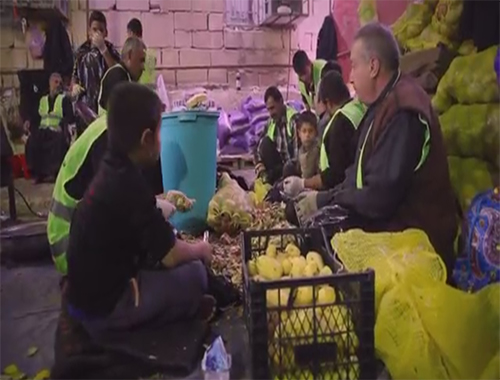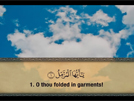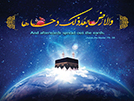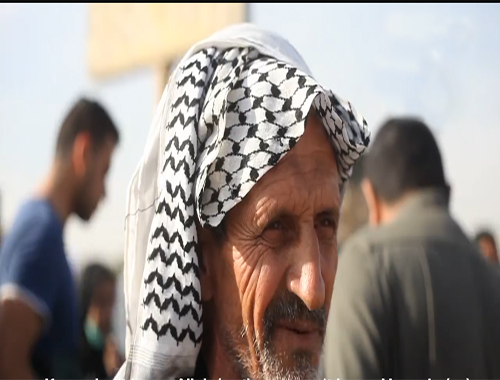The Forty-second Greater Sin: Tale Telling
- Details
- Hits: 2252
Chapter 45
The Forty-second Greater Sin: Tale Telling
--------------------------------------------------------------------------------
The second greater sin described as such due to the mention of its punishment in Qur’an and hadith is NamÄ«ma or Tale-telling. ShahÄ«d Thani in Kashful Rabi and Shaykh Ansari in Makasibul Muhrima have clearly defined it to be a greater sin, and have presented many Qur’anic ayats to support their view. For example:
“And those who break asunder the covenant of Allah after its confirmation and cut asunder that which Allah has ordered to be joined and make mischief in the land; (as for) those, upon them shall be curse and they shall have the evil (issue) of the abode.”
(Surah Ra’d 13: 25)
The tale-teller listens to a thing from a person and goes to tell it to someone else. By this he has broken that which Allah (S.w.T.) had ordered to join. Instead of promoting love and unity among the believers, he creates hatred, separation and enmity. Then the curse of Allah (S.w.T.) is upon him and the punishment in the hereafter.
In Surah al-Baqarah it is mentioned that,
“…and mischief is more severe than slaughter.”
(Surah al-Baqarah 2: 191)
and also,
“…and mischief is greater than slaughter.”
(Surah al-Baqarah 2: 217)
Evidently the tale-teller spreads mischief. In Surah al-Qalam Allah (S.w.T.) mentions the signs of disbelievers who become eligible for Hell in the words,
“going about in Slander.”
(Surah al-Qalam 68: 11)
Imam Sadiq (a.s.) mentions after describing the different kinds of magic,
“Indeed the worst type of magic is tale-telling that creates separation between friends. It creates enmity among clean and pure people who were of similar views. Tale-telling leads to bloodshed, homes are destroyed and secrets are exposed. The worst creature to walk the earth is the tale-teller.”
(Ihtijaj Vol. 2 page 82)
We have already proved that magic is a greater sin. Since tale-telling is the worst form of magic, it is also a greater sin. The Prophet of Allah (S) says,
“Shall I not inform you of the most evil person among you?”
“Certainly, O Messenger of Allah”, said the people.
“The worst are those who go out for tell tales, cause separation between friends and search for defects in righteous people.”
(al-KÄfi Vol. 2 page 369)
Imam Baqir (a.s.) says,
“Paradise is not allowed for those who go out to perpetrate scandals.”
(al-KÄfi Vol. 2 page 369)
The Holy Prophet (S) says,
“One who goes here there tale-telling between two people, will be sent fire by Allah in his grave which will scorch him. When he comes out from the grave a black serpent will be appointed on him which will continue to chew his flesh till he is made to enter Hell.”
(SawÄbul A’mÄl page 335)
He (S) also says,
“When I was on Me’raj (ascension) I saw a woman whose face was that of a pig and body of a donkey and she was being subjected to thousands of punishments.”
Someone asked the Prophet (S) what her crime was. The Prophet (S) replied,
“She was tale-teller, a liar.”
Wasa’il ul-Shia has recorded twelve traditions that prove tale-telling is HarÄm. All these traditions state that Paradise is forbidden for the tale-tellers.
In Surah Humaza, Allah (S.w.T.) says,
“Wael (Hell) is for every Slanderer (Humaza), defamer (Lumaza)”
(Surah al-Humaza 104: 1)
Wael is a level of Hell, it can also be a well situated in Hell. It denotes most severe punishment. Humaza means tale-telling or slander as clearly mentioned by Shahīd Thani in his book Kashful Rabi. Some scholars have also narrated the tradition that states that a tale-teller is illegitimately born.


